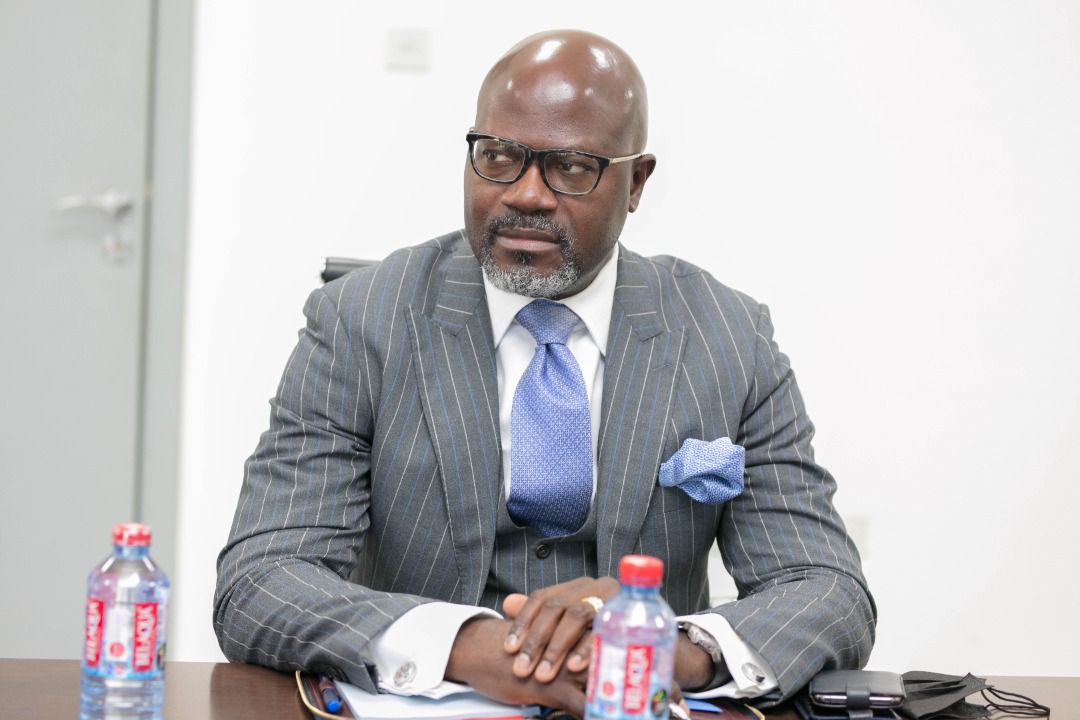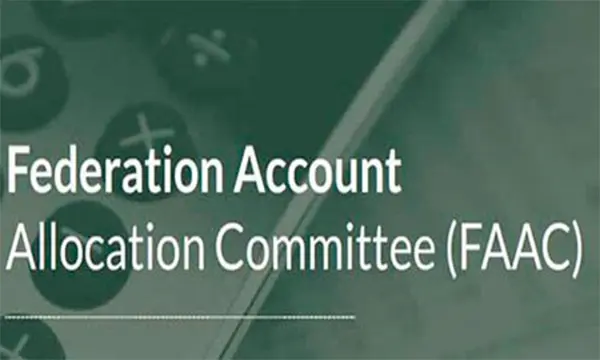Africa
The African Refiners Association estimates that upgrading existing refineries will cost $15.7 billion in Nigeria and other countries.

By Derrick Bangura
The African Refiners and Distributors Association (ARDA) has said Nigeria and other African countries would need at least $15.7 billion to upgrade existing refineries in their bid to reduce sulphur content.
Speaking at the second Refining and Specifications Virtual Workshop organised by the ARDA, the association noted that the upgrade was necessary to ensure that Africa embraces cleaner sources of fuels.
The Executive Secretary of ARDA, Anibor Kragha, noted that adoption of harmonised specification would halt importation of fuels not meeting the AFRI specs into Africa.
In addition, he explained that it would give existing refineries until 2030 to upgrade their facilities to produce cleaner, lower sulphur AFRI-6 specifications, arguing that targeted financing was urgently needed for projects to upgrade refineries and infrastructure.
“New process units required are to improve key fuel specifications, especially Naptha Hydrotreater (NHdT), Diesel Hydro-desulph. (DHDS), Benzene Extraction, Sulphur and Hydrogen Plants.
“Another key focus area is for African countries, especially those sharing common fuel supply chains to develop an integrated policy covering both fuel quality and vehicle exhaust emissions.
“This is to achieve the ultimate objective of clean air in our African cities. Without this integrated and coordinated policy, the objective of clean air will not be realised whether by imports or local production,” he said.
Also speaking at the event, Oil and Refining Research Analyst at Vitol, Maryro Mendez, noted that despite the withdrawal of fund from fossils, investment with sustainability plan had been on the rise.
Quoting Bloomberg statistics, she noted that sustainable debt annual issuance now borders around $824.7 billion as capital raised for renewables funds now dominate the energy sector. According to her, lack of uniform policies make it difficult for refineries to pass on the cost of carbon to customers as carbon price shifts the cost burden of climate change from society as a whole to the entities responsible for the emissions, providing lack of incentive for refiners to reduce emissions.
“The refining sector accounts for only three per cent of the global energy sector emissions. While refineries contribution to global energy sector emissions is low, the opportunities for reducing them are significant.
“Refineries globally have started thinking about measuring, monitoring and reducing carbon emissions and environmental sustainability has to be a priority for refiners and Africa is no exception,” Mendez said.
She said 80 per cent of refinery carbon emissions come from fuel combustion, hence fuel source and energy optimisation would present the biggest opportunity to reduce emissions.
“The challenge is not technical but is commercial with facilities requiring sufficient incentive and capital to invest without impacting on their competitive position,” she added.
Speaking on, “Upgrading refineries to produce AFRI-6 standard fuels,” Data Manager at CITAC, Richard Augood, said investment was still needed to make African refineries comply with AFRI-6.
For compliance in the aspect of gasoline, Augood noted that North African countries such as Algeria would need to upgrade its Adrar refinery, while in Egypt, refineries like Amreya would need Benzene extraction.
“In Libya, Azzawiya would need Benzene extraction, El Brega would need NHT, Benzene extraction while Sarir would need to be upgraded with NHT, Benzene extraction,” he stated.
In West and Central Africa, Angola, Sonaref refinery needs NHT, benzene extraction as Chad’s SRN needs CGDS and Benzene extraction while Congo’s CORAF needs NHT, Benzene extraction and H2 and Côte d’Ivoire’s SIR needs Benzene extraction and H2.
In Nigeria, Warri, Kaduna and Port Harcourt refineries, he said , would need NHT, CGDS, Benzene extraction while Senegal’s SAR must be upgraded with benzene extraction to meet AFRI Specifications.
Also speaking at the event, Honeywell-UOP’s Luque Guillermo decried that the oil and gas industry has been hit hard by the current global economic situation with rapid drops in demand.
He added that the changing mix of preferred products, volatile crude prices, and difficulty safely staffing production sites posed a challenge.
This prevailing development according to him, is forcing demand for some products such as diesel and naphtha to exceed demand for gasoline and jet fuel.
He said the sector now has to cope with new ways of working which is making workforces to operate remotely.
Africa
When the Gatekeeper Fumbles: JAMB’s Error and the Future of Our Youth

When the Gatekeeper Fumbles: JAMB’s Error and the Future of Our Youth
By Matthew Eloyi
It is not every day that a public official publicly sheds tears. And so, when the Registrar of the Joint Admissions and Matriculation Board (JAMB), Professor Ishaq Oloyede, broke down while admitting to errors in the conduct of the 2025 Unified Tertiary Matriculation Examination (UTME), it was a deeply emotional moment. But make no mistake: while the tears may have reflected remorse, they cannot wash away the consequences of what is, quite frankly, a systemic failure.
Let us be clear — JAMB is not merely an examination body. It is a gatekeeper to higher education in Nigeria. It is the bridge between dreams and their realisation for millions of young Nigerians. To fumble that responsibility is not a technical error; it is a breach of trust with life-altering consequences.
With nearly 380,000 candidates now required to retake the exam due to technical glitches and irregularities, one cannot help but ask: How did we get here? And more importantly, why does this keep happening?
For years, JAMB has marketed its transition to computer-based testing as a step toward modernisation. Yet each year seems to expose new cracks in its implementation — from faulty computer systems and power outages to incomplete biometric verification and poorly configured questions. These are not unforeseeable anomalies. They are predictable outcomes of poor planning, lack of oversight, and inadequate investment in infrastructure.
Imagine the psychological toll on the students, many of whom studied day and night, only to be met with malfunctioning systems and flawed questions. Some walked out of examination halls in tears, their confidence shattered, their futures placed in limbo. For those in remote or under-resourced areas, the technical errors are compounded by infrastructural and economic disadvantages. What we are witnessing is not just an exam failure; it is an institutional failure that amplifies inequality.
JAMB’s decision to allow affected candidates a resit is necessary, but it is insufficient. What about those who may never realize they were victims of the glitch? What about those whose faith in the process has been irreparably broken?
Professor Oloyede’s tears may have been sincere, but what Nigerian students need now is not emotion — it is accountability. Heads must roll, systems must be overhauled, and the entire structure must be audited. We cannot allow a body that plays such a pivotal role in shaping the nation’s intellectual future to operate with such recklessness.
The UTME is a rite of passage for Nigerian students; it should not become a roulette of misfortune. Until JAMB can guarantee a glitch-free, fair, and standardised assessment, its credibility will remain on shaky ground.
In the end, our children deserve better. They deserve an education system that works; not one that breaks down and apologises after the damage is done.
Africa
ECOWAS Confirms Burkina Faso, Mali, Niger’s Exit, Keeps Doors Open for Return

The Economic Community of West African States (ECOWAS) has confirmed that the withdrawal of Burkina Faso, Mali, and Niger from the regional bloc takes effect from January 29, 2025.
ECOWAS spokesperson Joel Ahofodji, in a statement on Wednesday, said the decision aligns with the ECOWAS authority’s resolution and reflects the spirit of regional solidarity and the interests of the people.
Despite their exit, Ahofodji emphasized that the bloc remains open to the return of the three Sahel nations whenever they choose.
“All relevant authorities within and outside ECOWAS Member States should take note of this development,” he said.
To minimize disruptions, ECOWAS urged the continued recognition of national passports and identity cards bearing the ECOWAS logo held by citizens of Burkina Faso, Mali, and Niger until further notice.
Additionally, the commission called for the continued application of the ECOWAS Trade Liberalisation Scheme (ETLS) and investment policies for goods and services from the departing nations. It also stressed that their citizens should retain the right to visa-free movement, residence, and establishment under existing ECOWAS protocols.
Furthermore, ECOWAS requested full support and cooperation for its officials from the three countries as they continue their assignments.
“These arrangements will be in place until the full determination of the modalities of our future engagement with the three countries by the ECOWAS Authority of Heads of State and Government,” Ahofodji stated.
He revealed that ECOWAS has set up a structure to facilitate discussions on these modalities, ensuring a smooth transition.
“This message is necessary to avoid confusion and disruption in the lives and businesses of our people during this transition period,” he added.
The News Agency of Nigeria (NAN) reports that Burkina Faso, Mali, and Niger initially announced their intention to leave ECOWAS on January 29, 2024, in accordance with the bloc’s protocol, which allows for a 12-month notice period. In December 2024, ECOWAS officially acknowledged their right to exit but reiterated its willingness to welcome them back in the future.
Africa
Customs hands over illicit drugs worth N117.59m to NDLEA

The Nigeria Customs Service (NCS), Ogun Area 1 Command, has handed over illicit drugs worth N117.59 million to the National Drug Law Enforcement Agency (NDLEA).
The Comptroller of the command, Mr James Ojo, disclosed this during the handing over of the drugs to Mr Olusegun Adeyeye, the Commander of NDLEA, Idiroko Special Area Command, in Abeokuta, Ogun, on Friday.
Ojo said the customs handed over the seized cannabis and tramadol tablets to the Idiroko Special Command for further investigation in line with the standard operating procedures and inter-agency collaboration.
He said the illicit drugs were seized in various strategic locations between January and November 21, 2024, in Ogun State.
He added that the illicit drugs were abandoned at various locations, including the Abeokuta axis, the Agbawo/Igankoto area of Yewa North Local Government Area, and Imeko Afton axis.
Ojo said that the seizure of the cannabis sativa and tramaling tablets, another brand of tramadol, was made possible through credible intelligence and strategic operations of the customs personnel.
“The successful interception of these dangerous substances would not have been possible without the robust collaboration and support from our intelligence units, local informants and sister agencies.
“These landmark operations are testament to the unwavering dedication of the NCS to safeguard the health and well-being of our citizens and uphold the rule of law,” he said.
He said the seizures comprised 403 sacks and 6,504 parcels, weighing 7,217.7 kg and 362 packs of tramaling tablets of 225mg each, with a total Duty Paid Value of N117,587,405,00.
He described the height of illicit drugs smuggling in the recent time as worrisome.
This, he said, underscores the severity of drug trafficking within the borders.
“Between Oct. 13 and Nov. 12 alone, operatives intercepted a total of 1,373 parcels of cannabis sativa, weighing 1,337kg and 362 packs of tramaling tablets of 225mg each,” he said.
Ojo said the seizures had disrupted the supply chain of illicit drugs, thereby mitigating the risks those substances posed to the youth, families and communities.
He lauded the synergy between its command, security agencies and other stakeholders that led to the remarkable achievements.
Ojo also commended the Comptroller General of NCS for creating an enabling environment for the command to achieve the success.
Responding, Adeyeye, applauded the customs for achieving the feat.
Adeyeye pledged to continue to collaborate with the customs to fight against illicit trade and drug trafficking in the state.
-

 Headlines4 years ago
Headlines4 years agoFacebook, Instagram Temporarily Allow Posts on Ukraine War Calling for Violence Against Invading Russians or Putin’s Death
-

 Headlines4 years ago
Headlines4 years agoNigeria, Other West African Countries Facing Worst Food Crisis in 10 Years, Aid Groups Say
-

 Foreign3 years ago
Foreign3 years agoNew York Consulate installs machines for 10-year passport
-

 News1 year ago
News1 year agoZero Trust Architecture in a Remote World: Securing the New Normal
-

 Entertainment3 years ago
Entertainment3 years agoPhyna emerges winner of Big Brother Naija Season 7
-

 Headlines1 year ago
Headlines1 year agoNigeria Customs modernisation project to check extortion of traders
-

 Entertainment2 years ago
Entertainment2 years agoMovie download platform, Netnaija, announces closure
-

 Economy2 years ago
Economy2 years agoWe generated N30.2 bn revenue in three months – Kano NCS Comptroller














